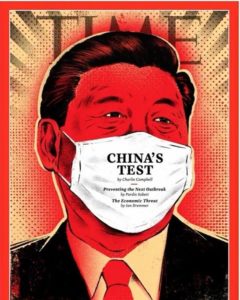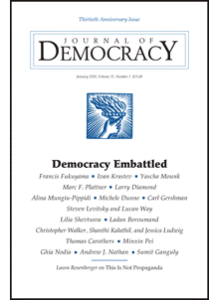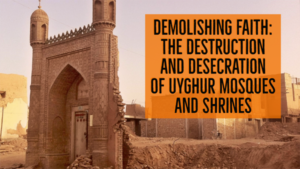The death of Li Wenliang has shaken China like an earthquake. He was a young doctor who was reprimanded by Chinese police for alerting colleagues to a new virus that has now killed more than 1,300 people, Dr Li among them (see article). There was nationwide soul-searching when the ophthalmologist told Chinese media, days before his death on February 6th in Wuhan, Hubei province, that silencing truth-tellers can make a country sick, The Economist reports:
Lots of patriotic, law-abiding Chinese have glimpsed for themselves the casual, swaggering sadism of a system without accountability, in which the law is just another instrument for frightening the defenceless. They can see how, when agents of the state fear no external checks and balances, it is rational for them to bury bad news, right up until a crisis becomes too big to hide: a dynamic that builds instability into the way China is run.

TIME/Twitter
Li’s story is so powerful in part because it fits neatly into another ancient archetype in Chinese history. The incorruptible Confucian scholar who speaks truth to the emperor but is persecuted, and ultimately dies for his honesty, holds a special place in China’s scholarly tradition. Li fits the role perfectly, The FT’s Jamil Anderlini adds:
The coronavirus crisis could lay bare the absurdities of autocracy for all to see….The path the virus takes next could determine whether Li is eventually compared to a more contemporary historic figure — [Mohammed Bouazizi] the young Tunisian fruit-seller who immolated himself in protest at the injustice of the regime, sparking the Arab Spring and the downfall of several dynasties across the Middle East.
China’s biological Chernobyl has captured the attention of the world, making it essential that we not abandon the millions of imprisoned Chinese Uighurs who have limited access to hospitals, nutrition and quarantine areas, USA Today reports:
One new study says as many as 75,815 people in Wuhan, China, where the virus originated, may have been infected by Jan. 25 — eight times the number of reported cases at the time. Additional research found that the number of infected people doubled in size roughly every week in the outbreak’s initial few weeks.
Performance flaws in authoritarian systems are hidden until an economic slowdown, an environmental or public-health emergency, an international humiliation, or a corruption scandal comes along and makes them glaringly apparent, This can cause authoritarian legitimacy to decline suddenly and drastically, notes Andrew J. Nathan, Class of 1919 Professor of Political Science at Columbia University and co-author of China’s Search for Security.
 In all types of political systems, adherents to Liberal Democratic Values (LDV) display a preference for regime characteristics associated with liberal democracy, he writes for The Journal of Democracy.
In all types of political systems, adherents to Liberal Democratic Values (LDV) display a preference for regime characteristics associated with liberal democracy, he writes for The Journal of Democracy.
China’s Systematic Persecution of Uyghurs
The Uyghurs, a Turkic Muslim group, have been targeted by the Chinese government for decades. In recent years, the government has escalated a campaign of persecution and mass detention in a sprawling system of forced labor camps and prisons, the United States Holocaust Memorial Museum writes.
Between one and three million Uyghurs—of a population of 12 million—are currently in some form of detention, and those who are not still face rapidly tightening control restricting their ability to express their identity. The Museum’s Simon-Skjodt Center for the Prevention of Genocide is deeply concerned that China’s actions may rise to the level of crimes against humanity.

National Endowment for Democracy
Please join a forthcoming event to learn more about what is happening to the Uyghurs.
Join the conversation online using #Uyghur, #Uighur, #AskWhy, and #USHMM.
Thursday, March 5
6:30 p.m.
United States Holocaust Memorial Museum
100 Raoul Wallenberg Place, SW
Washington, DC







